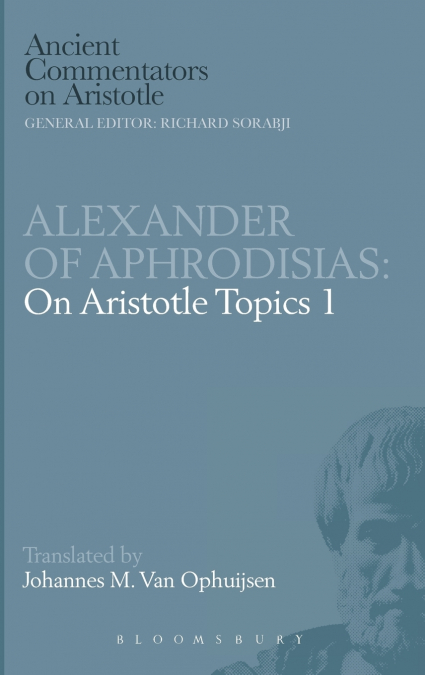
Johannes M.Van Ophuijsen / JohannesM.Van Ophuijsen
Aristotle’s Topics is about dialectic, which can be understood as a debate between two people or the inner debate of one thinker with himself. Its purposes range from philosophical training to discovering the first principles of thought. Its arguments concern the four predicables (definition, property, genus and accident). Aristotle explains how these four fit into his ten categories, and in Book 1 begins to outline strategies for debate, such as the definition of ambiguity. Alexander’s commentary on Book 1 discusses how to define Aristotelian syllogistic argument, why it stands up against the rival Stoic theory of interference, and what is the character of inductive interference and of rhetorical argument. He distinguishes inseparable accidents such as the whiteness of snow from defining differentiae such as its being frozen, and considers how these fit into the scheme of categories. He speaks of dialectic as a stochastic discipline in which success is to be judged not by victory but by skill in argument, a view parallel to that sometimes taken in antiquity of medical practice. And he investigates the subject of ambiguity which had also been richly developed since Aristotle by the rival Stoic school.